Since the outbreak of the war in Ukraine, the Reformed Church in Hungary and Reformed congregations and organisations have all been trying to do their best to help refugees. Most of the work is being done by the Hungarian Reformed Church Aid and the congregations near the border, of course, but the whole country has been mobilised.
Hungarian Reformed Church Aid in the Thick of the Work
The Hungarian Reformed Church Aid (HRCA) has set up its primary assistance site near the border, in the city of Záhony, where thousands of people from Ukraine are arriving through the border crossing. From the early morning hours until late in the evening, they are distributing mineral water, tea and sandwiches to the arrivals, and - by searching for possibilities registered with the HRCA - help the people in need find accommodation and reach their relatives, or the accommodation they have found.
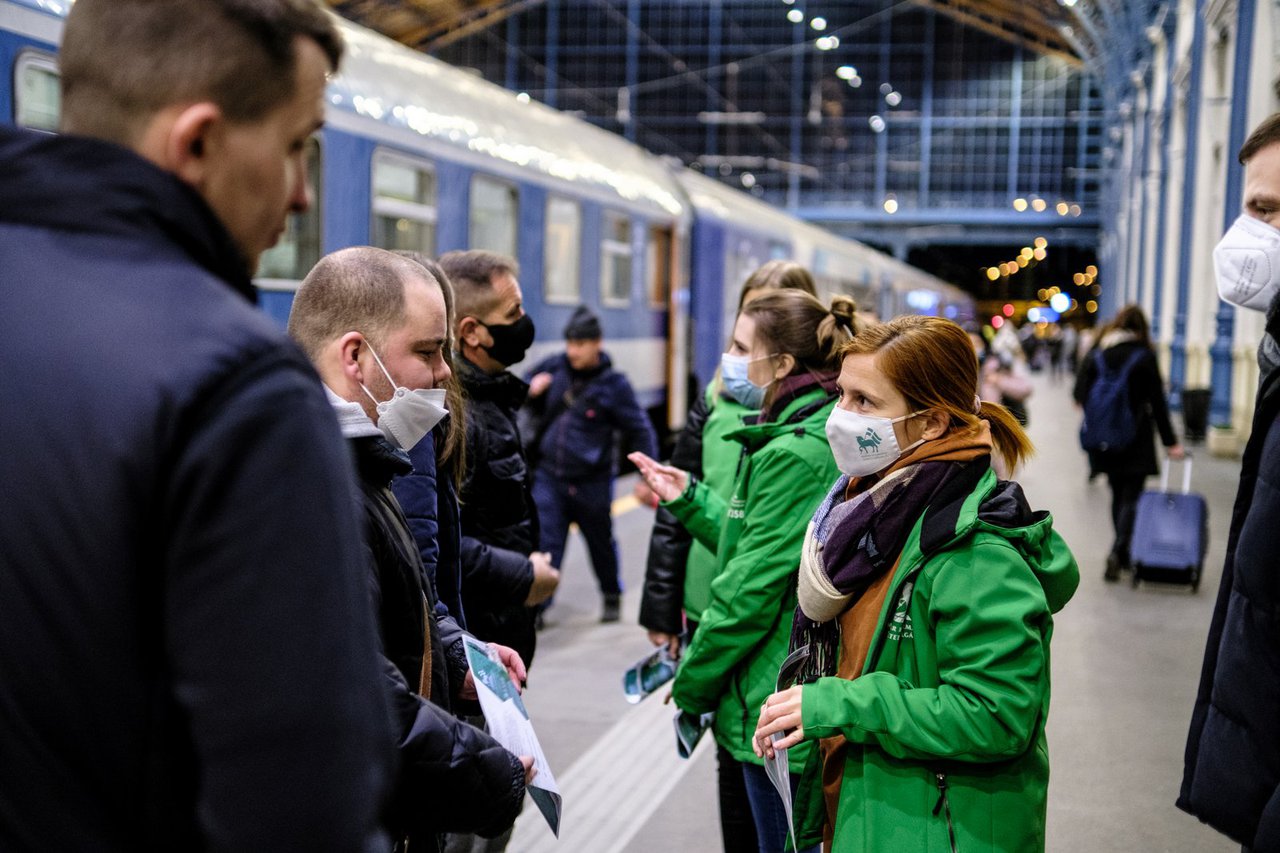
Colleagues and volunteers of HRCA at the railway station
On the afternoon of 27 February, , HRCA helped with a donation of million forints at the Záhony railway station. Márton Juhász, the Foundation's Executive Director, personally delivered a relief package of non-perishable food and hygiene products to Transcarpathia.
HRCA staff and volunteers are also active in Budapest, welcoming refugees from the morning hours until midnight at Keleti and Nyugati railway stations. The biggest challenge at the moment is the shortage of accommodation. The HRCA has its own shelter in Budapest, having converted its premises into a shelter on Thursday. But this temporary shelter was full by Sunday evening. According to the HRCA national database, the available capacities will fill up very soon. The biggest challenge is for large families, as relatively few can accommodate up to 8-10 people.
At Nyugati station, many people come to the HRCA staff with fruit, medicine, toiletries and soft drinks, which the volunteers prepare and distribute in the form of packets. The HRCA warehouses in Budapest, Debrecen-Ebese and Gelénes are open all day to receive non-perishable food.
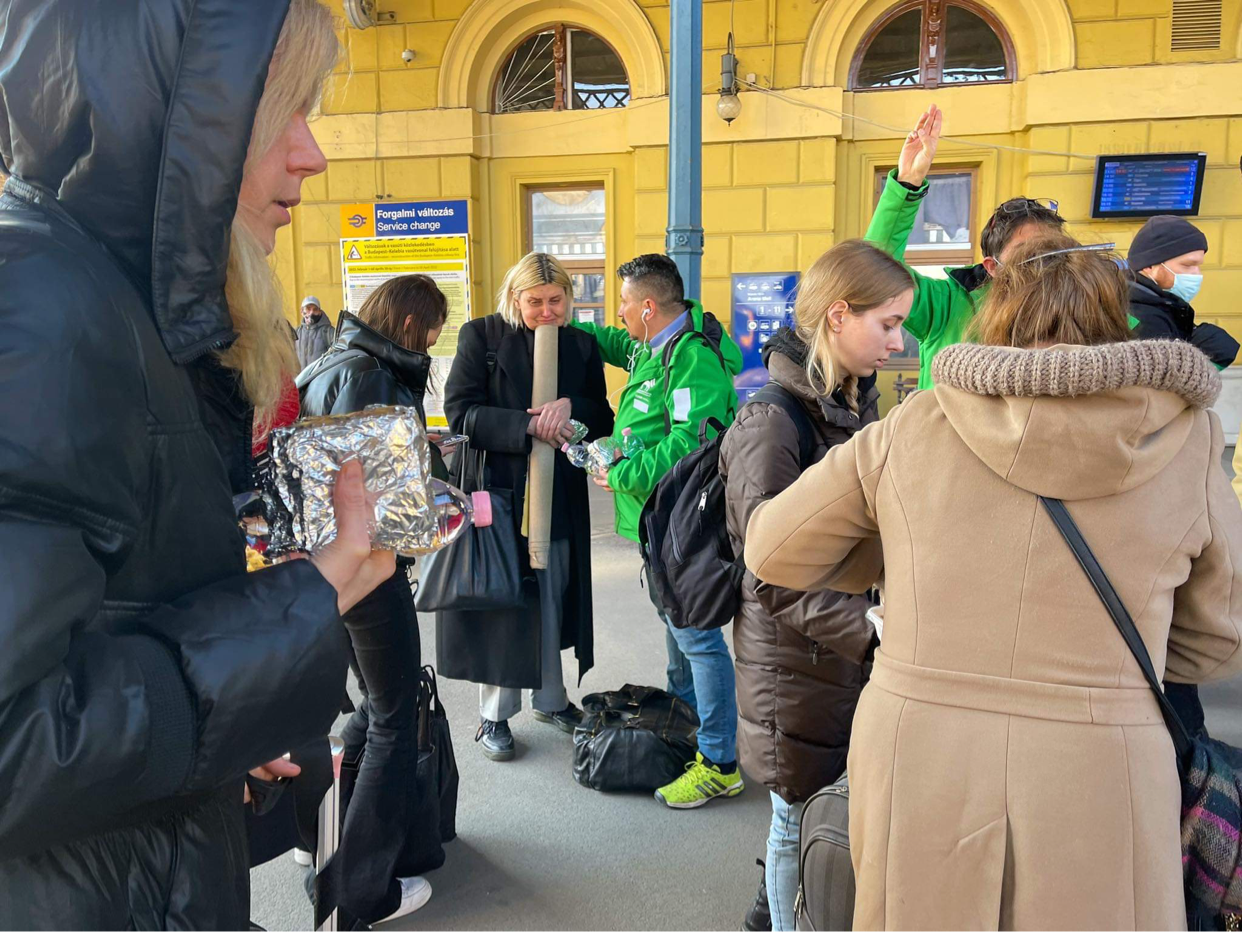
Many people donate money to help refugees, with more than 34.5 million forints (100 000 EUR) having been received by the Hungarian Reformed Church Aid by Sunday afternoon.
Donations for refugee accommodation are coming in from local governments, as well as from individuals and churches. Hajdúszoboszló, for example, has offered temporary accommodation for 40-50 people. HRCA administrative staff are busy almost all day recording the donations received and then delivering them to the refugee families.
The charity also started recruiting volunteers last week, but so many people applied that they closed the online application. Nearly 1,500 people have indicated they would like to help the work of the HRCA.
CAREFUL PREPARATION AND Coordinated action
Reformed congregations across the country have also been mobilised, and everyone is helping in any way they can. Of course, it is the congregations closer to the border that can do the most. The congregations in the local presbyteries are making superhuman efforts to help the refugees. This is especially true for the border congregations.
On the Facebook page of the Mátészalka Kertvárosi Reformed congregation, Pastor Gyorgy Nagy and Senior Pastor Dr. Tibor Makrai, reported that members of several congregations of the Szatmár Reformed Presbyteries are on the front line, making sandwiches and hot tea all day long. The congregations of Tiszakóród and Tiszabecs were among the first to offer their facilities, while the pastor of Csengersima opened the congregation’s community centre to the refugees.
A collection has also been organised in the Transtibiscan Church District (Debrecen), with donations of money being collected into the district's account and distributed to those in need, while material donations are accepted in congregations near the border.
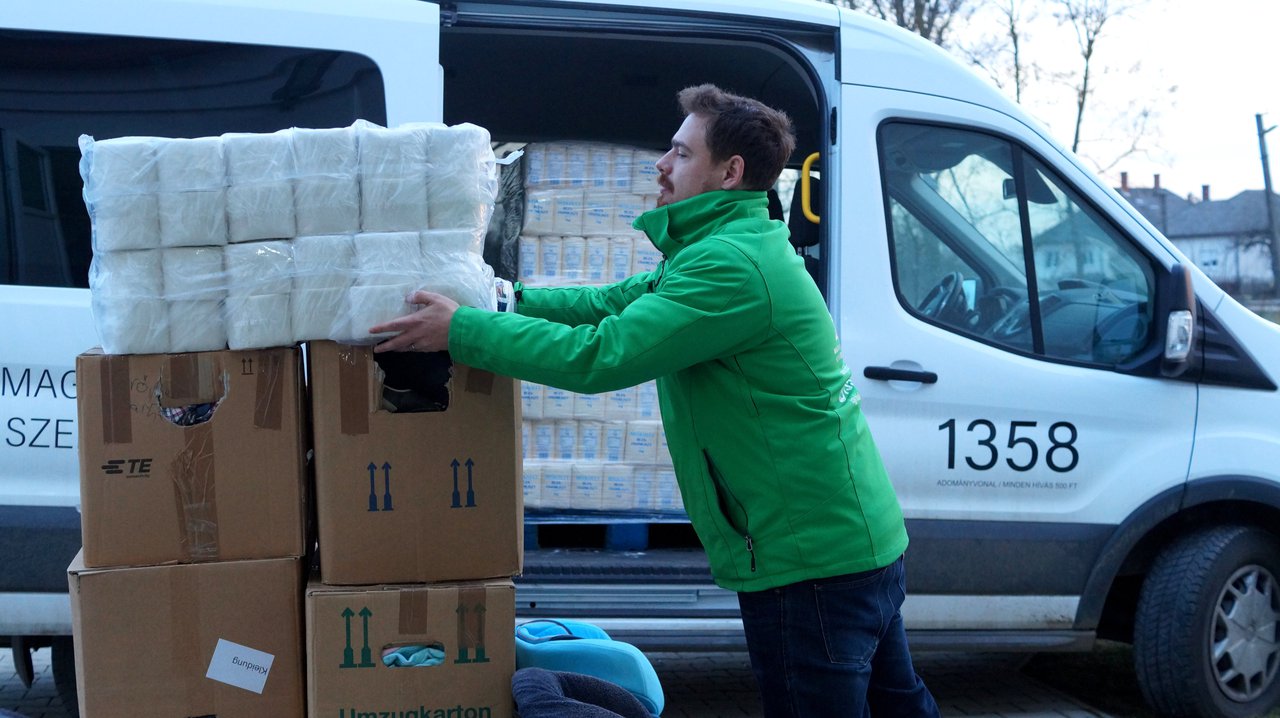
The congregations of the "second line" presbyteries are also ready to do their best, for example, in the presbytery of Abaúj, they have already prepared about 160 places to stay and have indicated to the HRCA that they are ready to receive anyone. As the Transtibiscan (Eastern) region becomes more and more saturated, we expect that more and more refugees will arrive in the Cistibiscan Church District. The camp of the Göncruszka church, for example, rarely used in winter, is already being heated so that the arrivals will not have to sleep in cold buildings .
Levente Sohajda, the pastor of Göncruszka, told Reformatus.hu that he believes that the Reformed congregations have been put to the test in a very tragic situation: they reacted quickly and opened their hearts. The congregations along the border responded within hours: they tried not only to go to the border as an individual team, but also to go in a well-prepared and organised way. He stressed that there is a significant coordination effort, led by the Reformed Church Aid, and called it a considerable achievement. The HRCA service channels volunteers from congregations in a way that is effective. "Volunteers have come forward from the beginning and have worked with vigour; it has been a heavenly mobilisation, whereby we have been moved by the Spirit and have found each other: pastors, congregations, and Church Aid, all of us working really well together. he confessed. He said that the first refugees arrived on Friday through family or church connections, and on Sunday two Nigerian exchange students from the University of Kiev were accommodated. "This also shows that what is happening affects the whole created world."
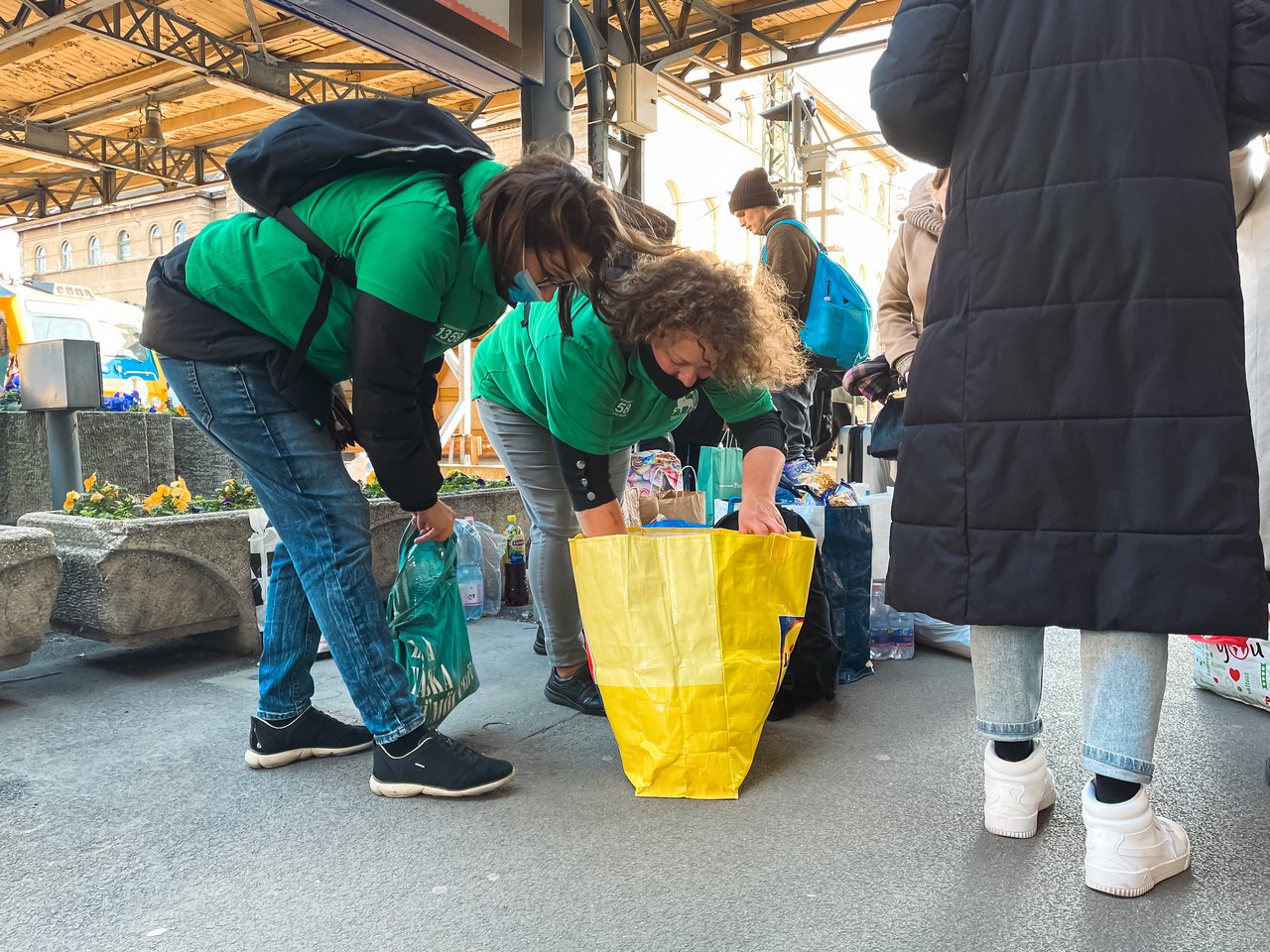
He stressed that all help is important, but perhaps the most important is the ability to speak Ukrainian and Russian. When someone can give information to a refugee in their mother tongue, it's like a hug. Levente Sohajda thinks that people have surpassed themselves, and although this was a new situation for everyone, our system has done well, certainly in terms of love. He hopes that someday someone will record all these selfless acts of kindness so that we can take stock of how the Lord can bring us through and mobilise us in such a cause.
Congregations in other parts of the country are also active, and the Reformed parish of Kaposvár has collected tons of donations in response to an appeal. Many Reformed congregations, institutions, NGOs, companies, entrepreneurs, parents' associations and individuals in the area have joined forces. The donations will be transported in nine minibuses, which left for the Beregszáz/Berehove Diaconal Centre of the Transcarpathian Reformed Church (Ukraine) in Beregsurány at dawn on Tuesday.
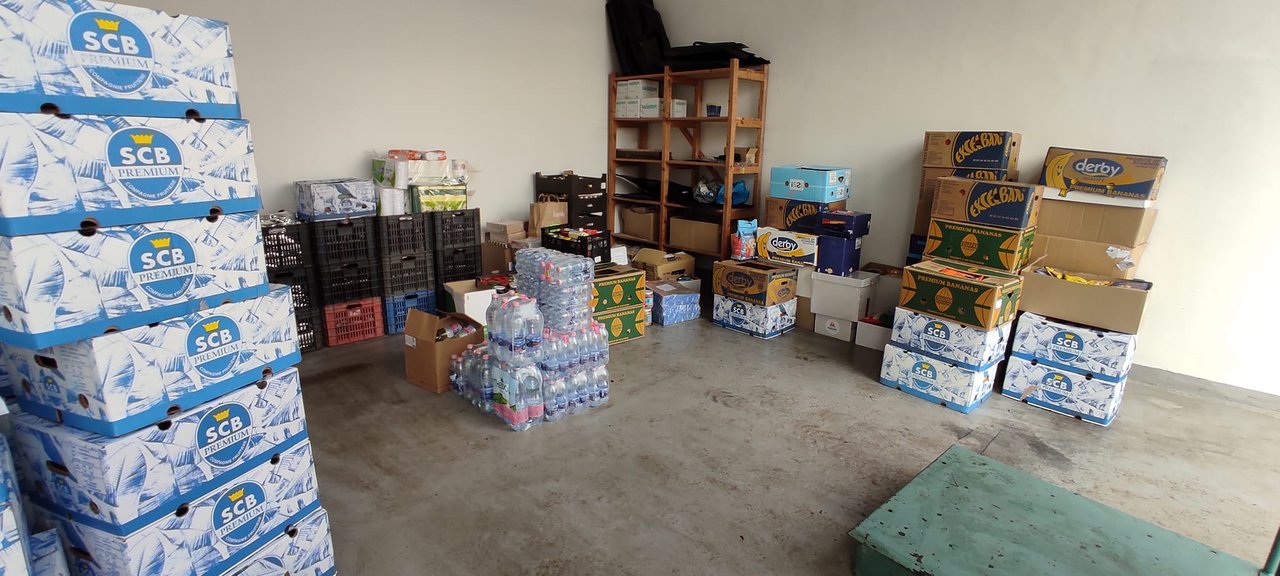
Boxes filled with food and hygiene kits collected in Kaposvár, a congregation in West Hungary
SÁROSPATAK OFFERS DORMITORY PLACES
Sándor Kocsis, a senior student at the Reformed Theological Academy in Sárospatak, will coordinate initiatives to help refugees there. He reported that they had available places in three of their boarding schools, which were offered to accommodate refugees, and now they have 30 people, including young children. After providing accommodation, they are now assessing their other needs and three doctors have recently been there to examine the arrivals. When we reached Sándor Kocsis, he was bringing medicine to one of the children. The Academy is also trying to provide financial support to 16 students from Transcarpathia in this difficult situation.
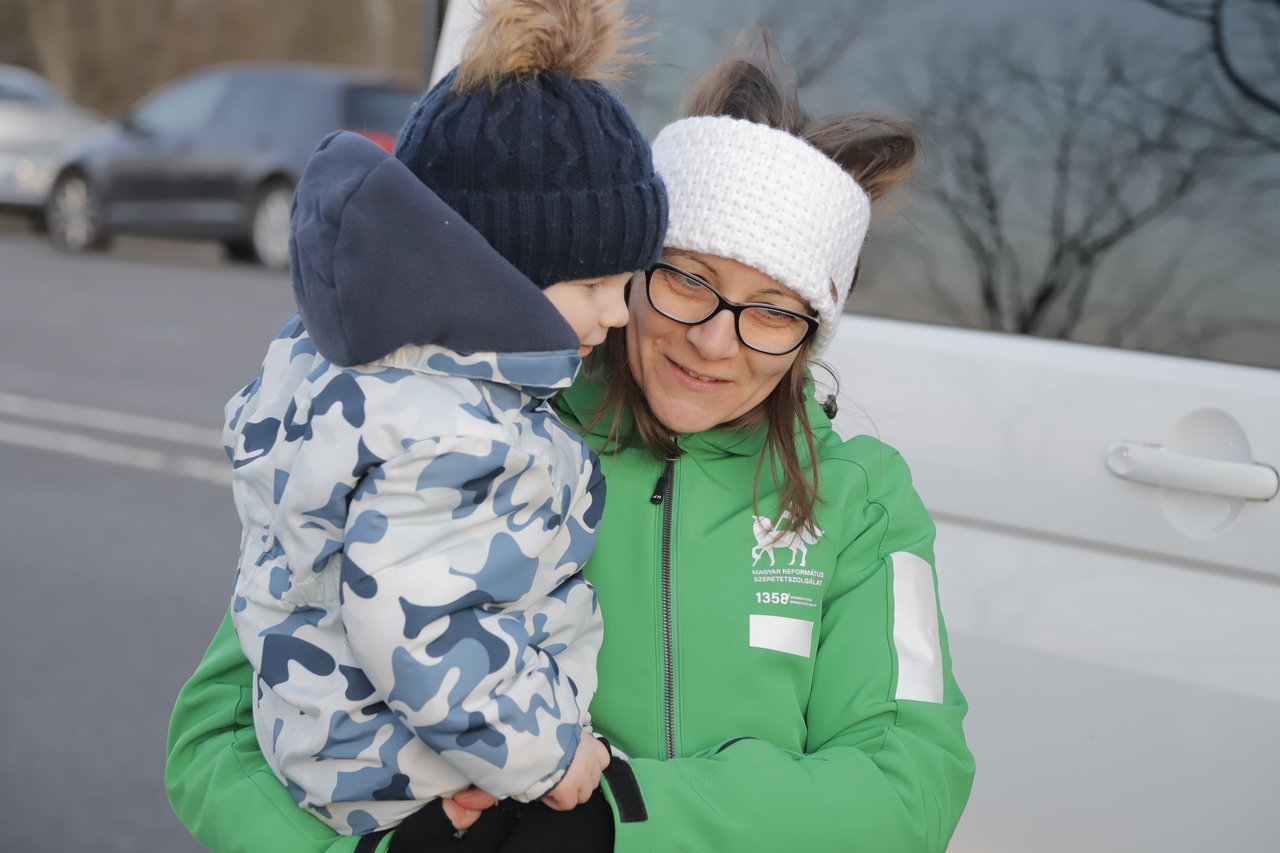
There were no places available in the dormitory of the Sárospatak high school, according to Endre Beidek, the deputy principal of the high school. They could not have accommodated anyone more there even with a "shoehorn", so they took on the task of feeding the refugees housed in Sárospatak. The institutions also coordinated among themselves as to who could take on what, so that the burden was shared equally.
THE BETHESDA CHILDREN'S HOSPITAL PROVIDES MEDICAL ASSISTANCE
The Bethesda Reformed Children's Hospital has set up a permanent medical presence at Nyugati station to help refugees in need. Over the weekend, doctors from Nyugati station have already sent families with children to the hospital, where they were treated in the outpatient clinic. Nóra Tamásné Bese, the hospital's director of public relations and communication, said that as of tomorrow, three teams of doctors will also be providing medical assistance to people arriving from Ukraine in Záhony. Two doctors and an assistant will be on standby every day, alongside volunteers and staff of HRCA. Other organisations have also joined this initiative, for example the Association of General Pediatricians is also supplying volunteer doctors, so Bethesda will also have a coordinating role.
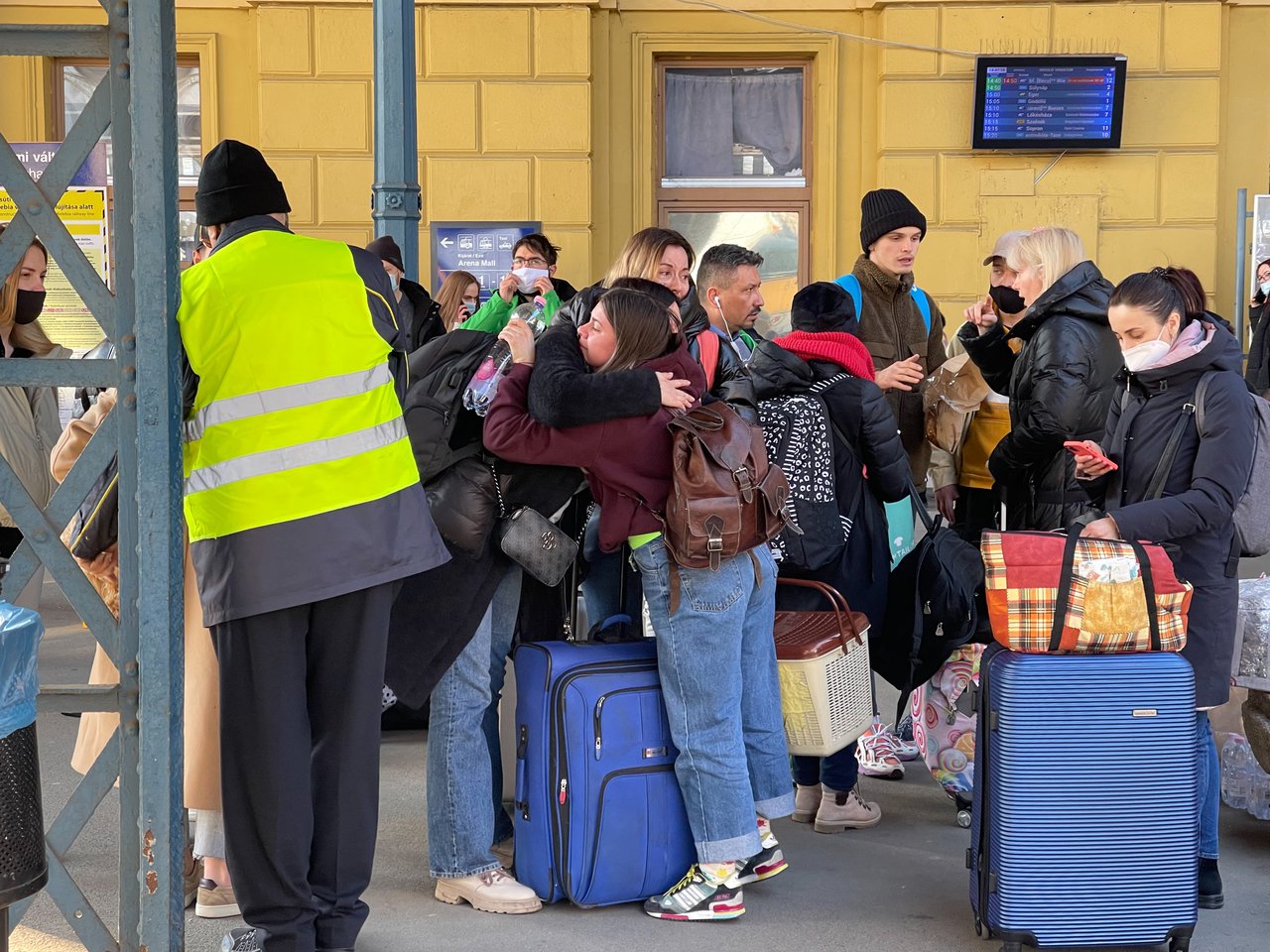
The other line they have taken is that the hospital's foundation has earmarked one million forints to buy and send out medicines that are already in short supply in Transcarpathia. These medicines will be sent to the Christian Health Centre in Mukachevo and distributed to hospitals in Transcarpathia. The donation is not being put together in a haphazard way, they have been given a precise list of what is needed. There are no longer any medicines available in Transcarpathia to treat diabetes, high blood pressure and other chronic diseases.
Nóra Tamásné Bese stressed that they are trying to help in an organised way, in coordination with other actors, especially the charity service, to ensure that the help is delivered to where it is needed most.